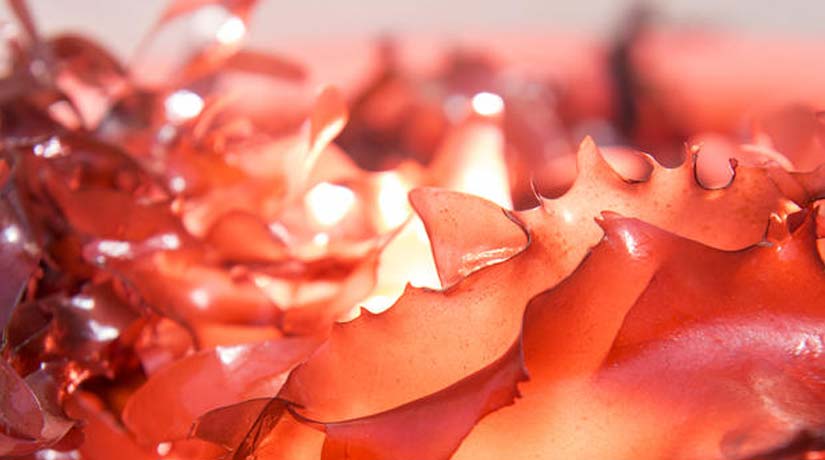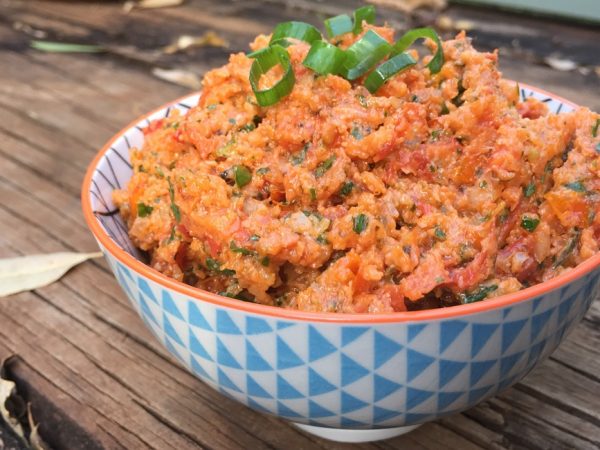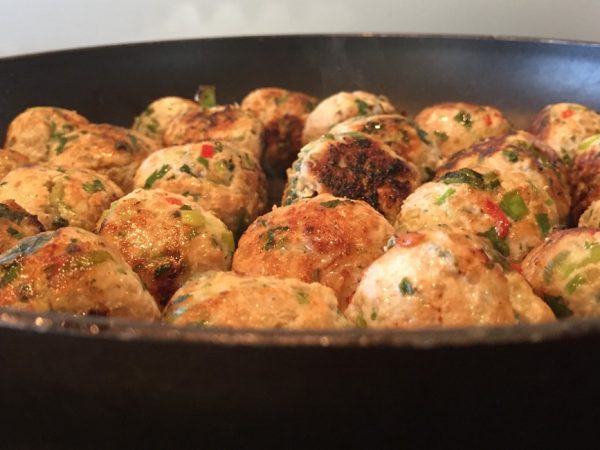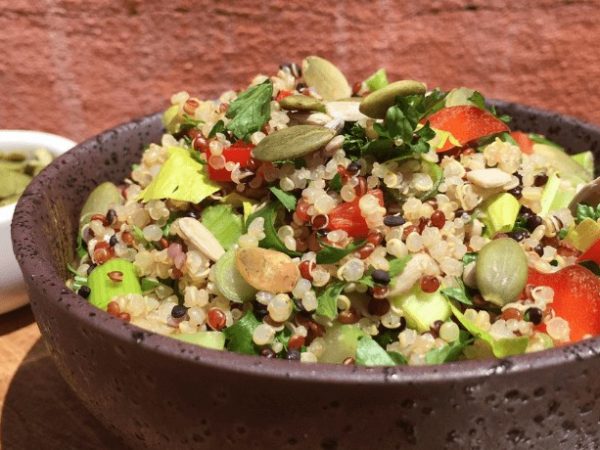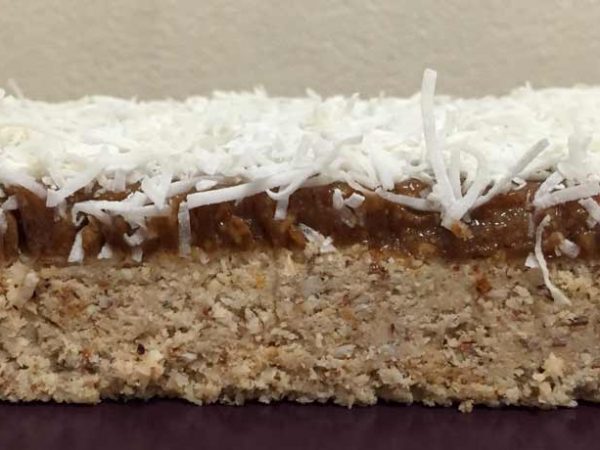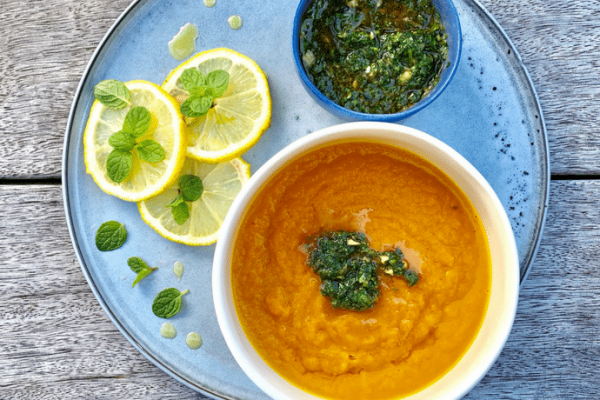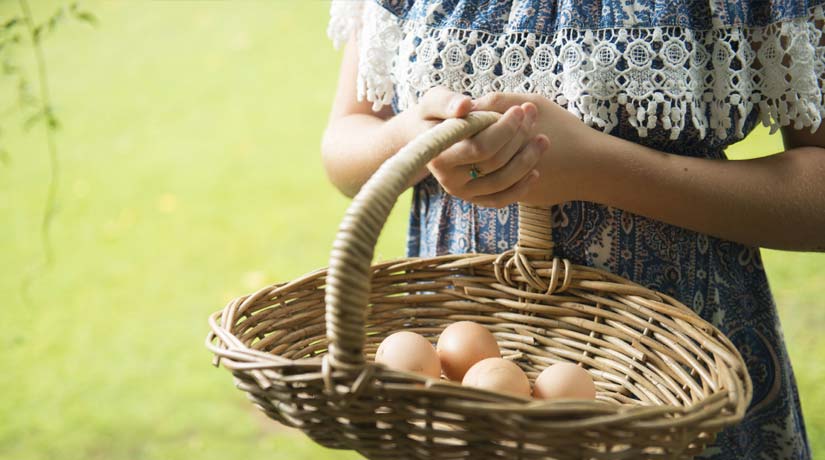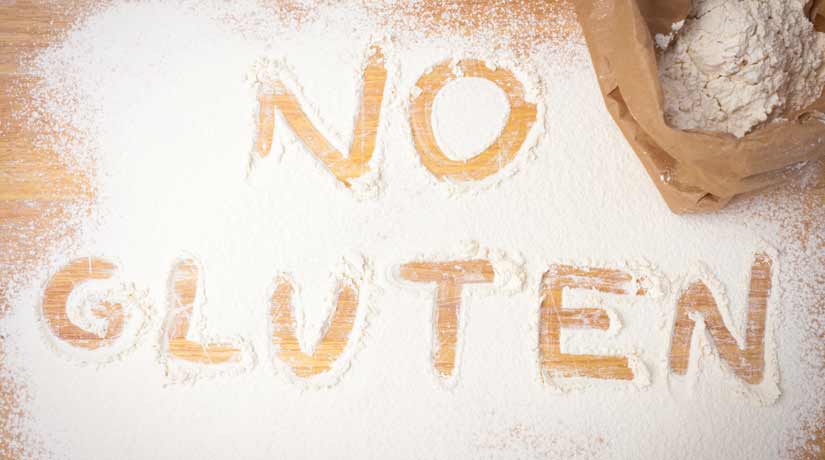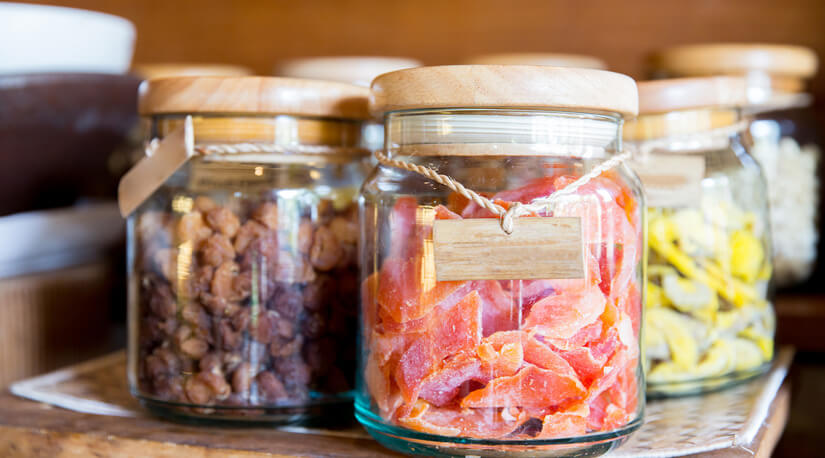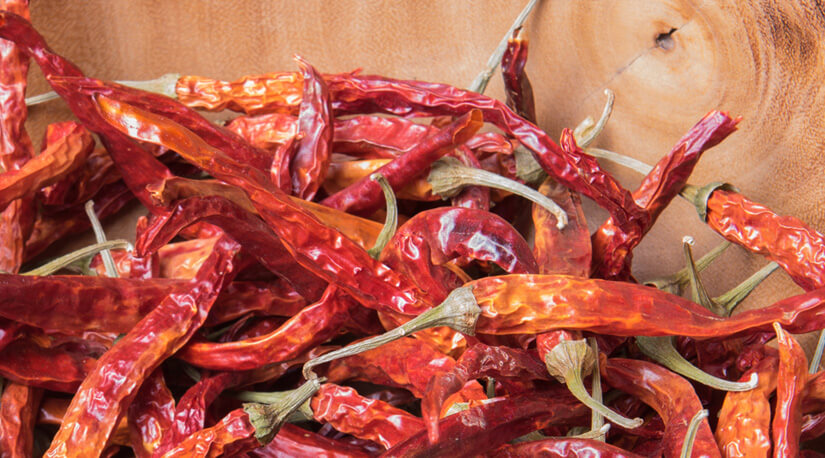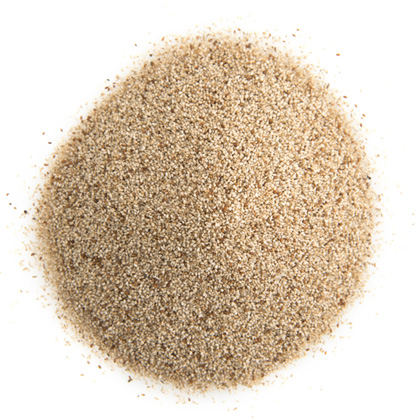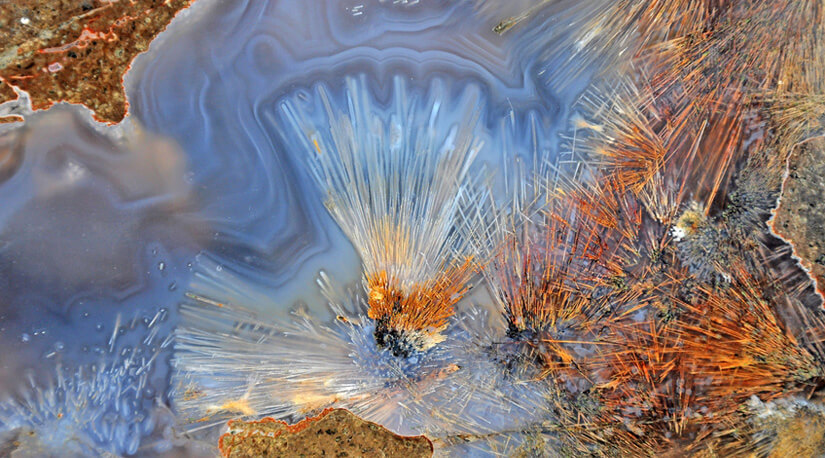Dulse is a type of edible red algae that grows wild, attached to rocks on the northern coasts of the Atlantic and Pacific oceans. Dulse contains a huge range of valuable vitamins and minerals and has traditionally been used fresh or dried as food and medicine in Scotland and Ireland for many hundreds of years.
Perhaps one of the most important vitamins found in Dulse is B-12. B-12 is found mostly in animal products and some seaweeds, and must be consumed in our diet as our bodies are unable to produce it on their own. B-12 is essential for brain and nervous system function as well as playing a key role in red blood cell production. As with all B-vitamins, B-12 is water-soluble which means it is easily destroyed when heated.
Dulse also contains high levels of potassium (20 times greater than that of bananas), a mineral that is essential for good health. Potassium is used by the body in muscular contractions, to maintain normal blood pressure and for sustaining correct body fluid levels. Potassium can also increase sodium excretion, which is found in high amounts in salt and processed foods. Too much sodium in the body can draw calcium out of the bones, leading to reduced bone density as well as increase the risk of stroke and kidney disease. Dulse also contains sodium, however it is in a well balanced ratio with Potassium, Calcium and Magnesium.
But wait, there’s more. Research shows that Dulse also has important anti-viral qualities as well as containing Iodine (commonly found in the seaweed family), a trace mineral that is low in Australian soils and essential for the healthy functioning of many bodily systems.
Dulse is most commonly sold dried and powdered which maximises its nutritional content. It can be used in a variety of ways. Try sprinkling it on popcorn or your favourite green salad, or baking into savoury biscuits and crackers.
Enjoy your week in the kitchen,
Jesabe Warner
Naturopath, Affordable Wholefoods

